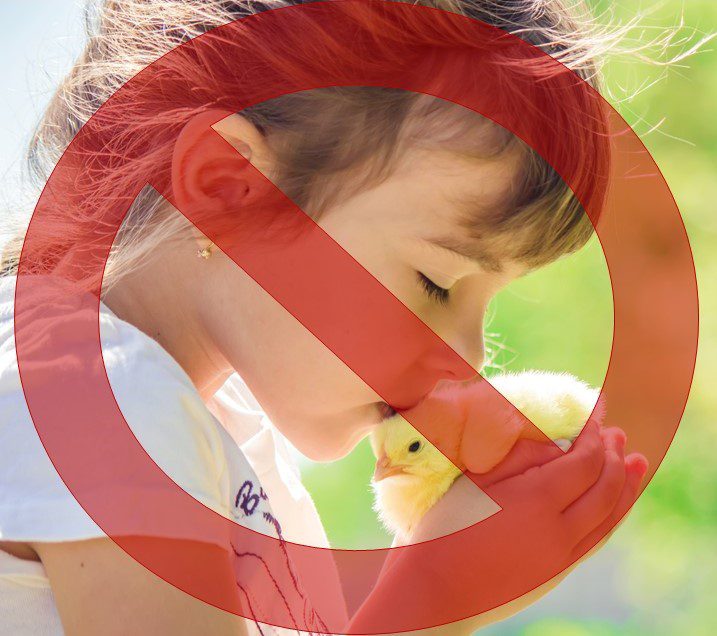Farming

Raising backyard poultry is popular, but poultry owners must remember that these birds can carry the deadly Salmonella bacteria and other pathogens even when they look healthy and clean. In 2021, there were 1,135 cases of Salmonella infections that were linked to backyard poultry. However, the Centers for Disease Control and Prevention (CDC) estimates that the actual case count was many times that number. Cases were found in 48 states, Washington, D.C., and Puerto Rico, with 24% of illnesses occurring in children under the age of five.
Protection
There are some simple steps that poultry owners can take to protect themselves and their families from contracting Salmonella from their poultry flocks.
- Wash your hands. After touching poultry or items in their environment, be sure to thoroughly wash your hands with soap and water. Hand sanitizer may help, but washing hands is best. The CDC advises that children under 5 should not handle poultry because they are at an increased risk of infection. If they do touch poultry, be sure to help them properly wash their hands.
- Wash and sanitize shoes before the feces from a chicken coop or pasture can be tracked into your car or home.
- Don’t wash poultry supplies in the house. Keep them outside and wash them with a garden hose.
- Do not eat or drink where the birds are kept.
- Do not kiss the birds or touch them with your face.
- Handling eggs properly is also essential. To reduce the spread of feces, dry cleaning or spot cleaning the eggs is recommended, as opposed to immersion washing. More tips on handling eggs are available in the Alabama Extension publication Enhancing Egg Quality & Safety in Small Flocks.
For those that raise or come in contact with backyard poultry, it is critical to follow these procedures as they are designed to protect poultry owners, their families, and the birds from illness.

